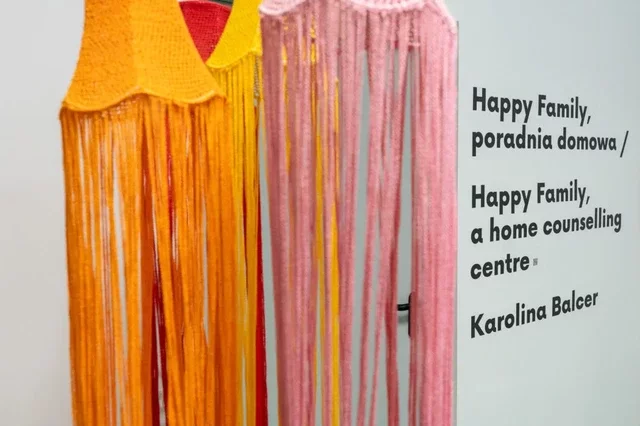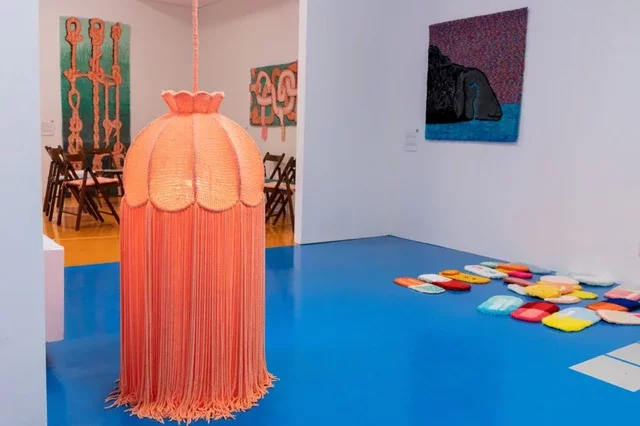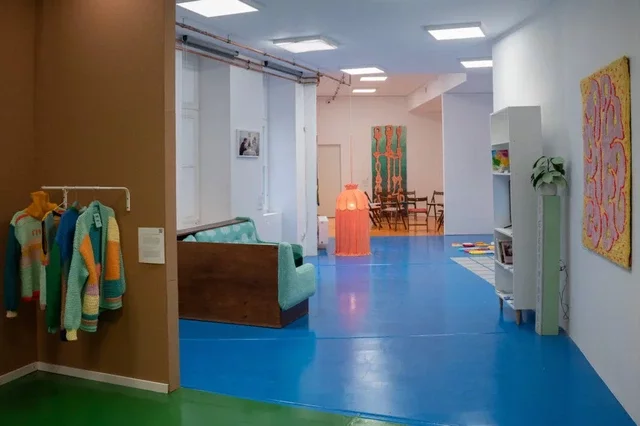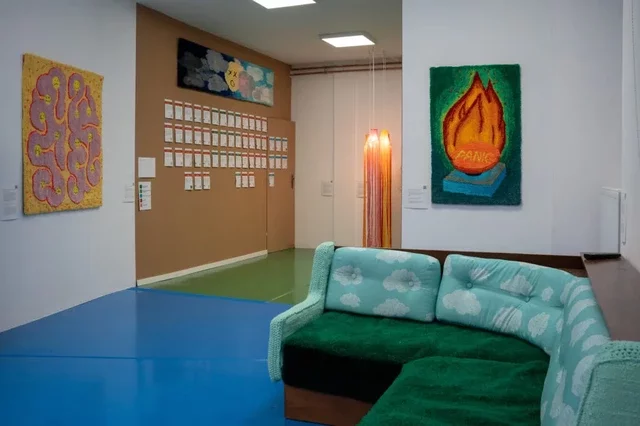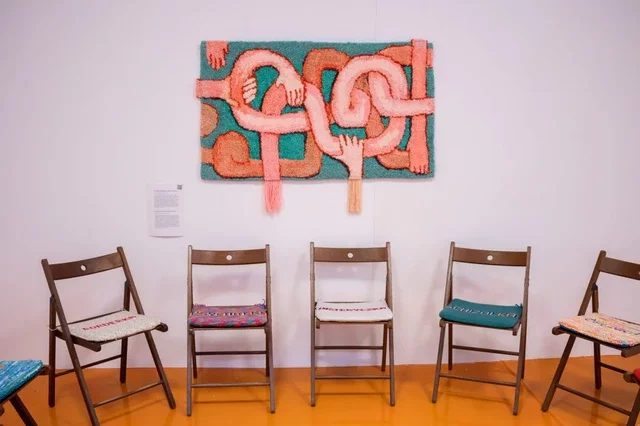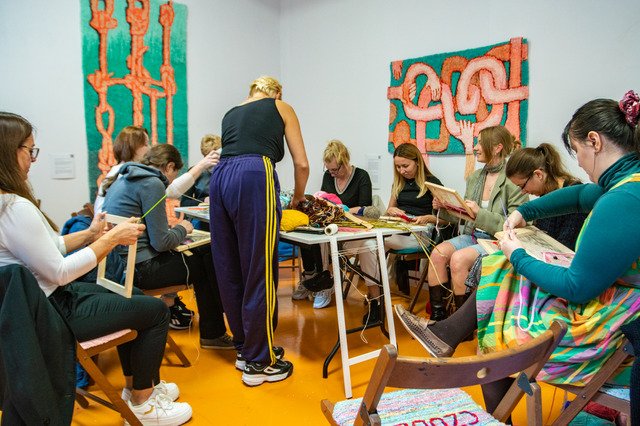Happy Family, a home counselling centre
Curatio: Zofia nierodzińska
Location: Galeria Miejska Arsenał, Poznań
Fragment of the curatorial text:
The photograph shows a family, from the left: Karolina, her two years older brother Filip, grandfather, father Sławomir, and mother Aleksandra. They are sitting around a white tablecloth-covered table eating a meal. In the background, on the wall, there’s a monidło, i.e., a coloured wedding photograph, depicting the grandparents at, probably, the best time of their lives. Everything appears to be exemplary, festive, even – no Polish politician would hesitate to show off such a family on their election posters. This photograph opens the "Happy Family Project" website, set up by the artist Karolina Balcer for research purposes. The focus of her investigation are her loved ones, and the starting point – a desire to comprehend what her family has endured over the last several years – ever since Filip sought help for addiction, received a double diagnosis (substance use disorder + schizophrenia) and periodically battled homelessness; ever since her parents became experts in the field of co-addiction, and she herself experienced depressive episodes.
This typical Polish family is fighting addiction, co-dependency, homelessness, depression, schizophrenia, and bipolar disorder – and none of this is visible in the photograph. What often escapes the frame is indeed the subject of Balcer’s work. The artist reveals family secrets that are often swept under the carpet. In order to do that, she employs knitting and tufting, turning family traumas into shapes: pillows with destigmatizing slogans, sweaters with practical answers to the most frequently asked questions, doormats displaying a cry for help, a carpet showing severed family ties, happy pills for everyday day, or a portrait of her father covered with a protective duvet-armour.
(…)
Challenging taboos associated with the subject of psychological conditions means that they can be discussed more often and gradually normalized, meaning that, eventually, there’d be less stigma attached to those living with them. The exhibition aims to produce and disseminate knowledge, as well as to encourage viewers to destabilize the existing, oppressive societal patterns. Its goal is to co-create a space in which living with trauma, co-addiction and illness doesn’t lead to marginalization, but adds an indispensable element of realism to the collective experience, also related to our functioning within the art world.
More on: https://arsenal.art.pl/en/exhibition/23640/
Translation: Joanna Figiel
Photos: Michał Adamski
